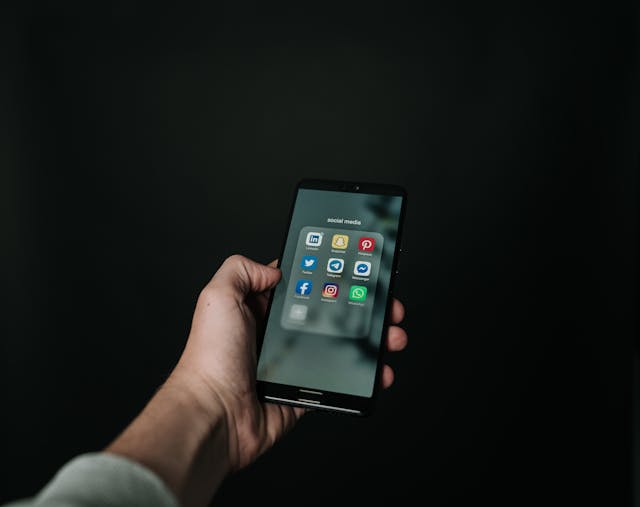By Michael Saul, Partner at Cosmetic Surgery Solicitors
Social media provides users various ways to present the ‘best’ version of themselves, whether it be through using filters or from TikTok’s settings that whiten teeth and smooth out skin. While changing one’s look for a single Instagram post or a 15-second video may seem harmless, what happens when users want to see these altered versions of themselves all the time?
Cosmetic Surgery Solicitors examines how young people are being persuaded to pursue cosmetic surgery at an early age by the proliferation of social media editing and offers suggestions for preventing this.
Image editing
Users can choose from hundreds of different filters on platforms like Instagram, TikTok, Facebook, and Snapchat before applying them to their photos and videos. Users can access filters that give them blue skin or wings, but they can also give themselves freckles, thicker eyelashes, more defined cheekbones, and a smaller nose, to name a few.
In order to make their noses smaller, their teeth whiter, and their figures more resembling those of their favourite celebrities, applications like Facetune go one step further and charge their users a monthly subscription fee. When the app first launched, it was hailed in the Huffington Post as “a Photoshop editing job in the palm of your hand” and was even referred to as “magical”.
A subset of social media users that are dissatisfied with their appearances has emerged as a result of the possibility to change one’s appearance at any time. Dr Esho, cosmetic doctor at The Esho Clinic and star of E4’s Body Fixers, dubs the phenomenon “Snapchat dysmorphia”.
“Today’s generation can’t escape ‘the Truman effect’ because from birth they are born into an age of social platforms where their feelings of self-worth can be based purely on the number of likes and followers that they have, which is linked to how good they look or how great these images are,” Esho told The Independent.
The impact of social media on younger generations
Campaigners for positive body image and cosmetic surgeons are particularly concerned about how this easy access to photo and video editing may affect young people.
The increasing demand for injectable face fillers and Botox among patients who are getting younger and younger could be directly attributed to celebrities on social media. The buccal fat reduction trend was all the rage in late 2022, and a lot of famous people admitted to having their cheek fat removed for a more defined appearance.
While it may be viewed positively that celebrities are now openly disclosing the operations they’ve undergone, demonstrating that beauty is not solely a genetic trait, it may also encourage younger people to undergo cosmetic procedures.
In a study into cosmetic procedures and the influences that drive people into undergoing a procedure carried out by Nuffield Bioethics, it was discovered that “increased use of the rating of images of the self and the body [on social media], for example through ‘likes’; the popularity of celebrity culture, airbrushed images and makeover shows; [and] the huge growth in the use of social media” was a huge contributing factor into why people had cosmetic procedures.
How to adopt a more body neutral image
The pressure to fully love your body and feel body positive constantly can feel overwhelming. Body neutrality may be a healthy approach to body image for you.
You can adopt a body neutral approach in a variety of ways. It can be challenging to accept your body for what it does for you, particularly if you have a negative attitude towards your body. Take a look at some of the ways that you can start to practise body neutrality:
- Focus on what your body can do for you. Your body is more than just its image, it is important to remember what your body can do for you in a practical sense. If you are struggling to accept your body, remind yourself that your body gets you from A to B, allows you to eat food and drink, and is the reason you are able to communicate with loved ones.
- Spend less time getting ready. Spending less time getting ready means there is less time to contemplate your appearance, whether it is makeup, the clothes you wear, or the way your hair is styled, standing in front of a mirror for too long will allow you time to start picking out perceived flaws.
- Wear comfortable clothes. Wear clothes that feel comfortable to you. Try not to worry about keeping up with the latest fashion trends.
- Stop unwanted conversations. If you are part of a conversation regarding weight loss, or other body issues that you are not comfortable with, remove yourself from the situation. Surrounding yourself with uncomfortable conversations will not help you move away from the negative thoughts.
- Be patient with yourself. It is vital to be patient with yourself, accepting your body for what it is can feel hard, especially if you have to unlearn years of negative thought processes. Rewiring your brain to view your body in a neutral way takes time, do not rush yourself or feel like you have failed if it does not come as quickly as you would like.
It is important to know that, while social media can heavily influence a person’s self esteem, there are ways to let it have less impact on your life. Try using your phone less, or unfollowing influencers who make you feel insecure about your body. By taking active steps towards body neutrality, you can spend less time worrying about your appearance and more time doing the things that bring you happiness.
Apart from this, if you are interested to know more about Powering Payments then visit our Technology category


